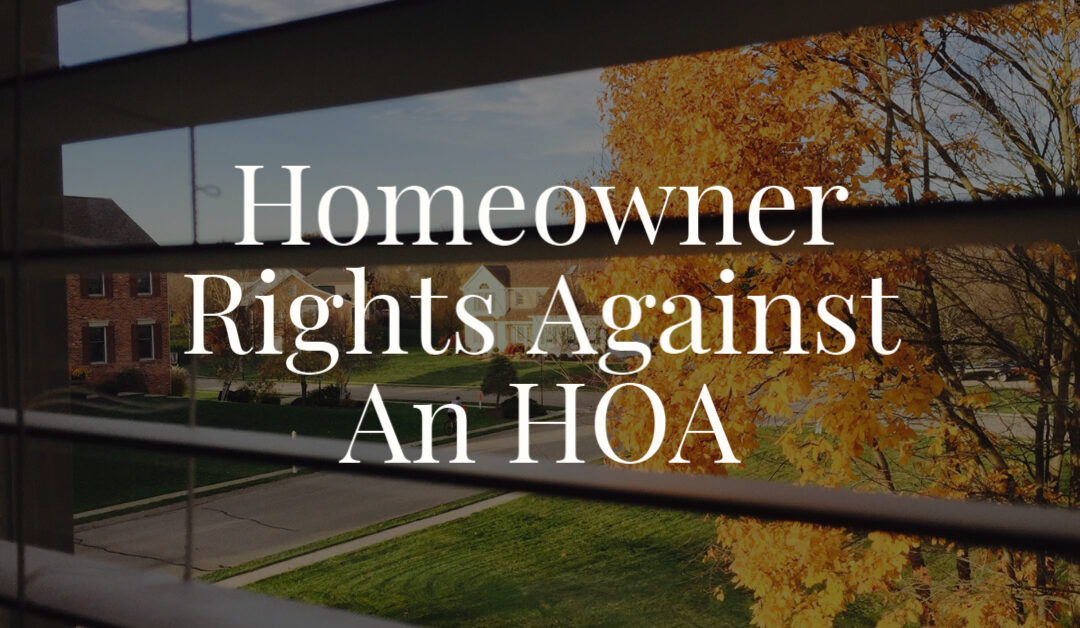If you have issues with a homeowner’s association, you are not alone. An HOA is a governing body for your community, but sometimes, they can make bad decisions that affect you. Whether an HOA is overstepping by cutting your tree limbs or negligent through misuse of funds, your community may suffer. Lack of attention to a community pool or rampant disregard for the gates of a community are common problems also.
Problems Abound
Homeowners across Texas complain that there is no oversight for HOA Boards in the State of Texas. The current laws offer no relief. What can you do when your HOA is:
- Militant about rules and regulations?
- Prohibiting questions about HOA fees and special assessments?
- Declaring that you have no right to access HOA documents or financial reports?
- Barring your entry to disciplinary hearings or even monthly or annual meetings?
Texas Property Code contains much of the law surrounding what HOA’s can and cannot do. However, many HOA’s choose to overstep boundaries and violate laws openly. Let’s look at your rights as a homeowner and the reasons it may be necessary to sue your HOA.
If Your HOA Refuses Access to Documents
When you buy a home located in a subdivision run by an HOA, you choose to be contractually obligated to the HOA. Some documents govern this process. You most likely have a Declaration of Covenants, Conditions & Restrictions (CC&Rs). Read and focus on your rights and responsibilities to see what is legally expected from you. Read the land-use restrictions and maintenance standards sections. Study the regulations for how the CC&R is implemented.
The county clerk will have a copy of the management certificate filed as required by law in the county’s real property records. It is saved as a “Property Owners ’ Association Management Certificate.” If there are any changes, the HOA is legally required to update 30 days within new decisions and file the amended certificate.
Other documents your HOA should possess include Articles of Incorporation and the Bylaws. If the HOA refuses access to the contractual agreement, your best option is to contact a real estate attorney to force the issue.
Rental Restrictions
Sometimes a community has a good reason to restrict rentals. Short-term rentals can cause trouble. However, the HOA must find legal standing before enacting this restriction. Often, the HOA will involve the community in a vote where most property owners agree to a valid restriction.
If you are unsure whether your HOA has the legal authority to restrict a rental, talk with an experienced real estate attorney about your options. Your rights as a homeowner are worth fighting for.
Land Use Restrictions
Courts often uphold land-use restrictions that benefit a neighborhood. An HOA often upholds the restrictions that a community as a whole has agreed to. Often, these restrictions are legal, even if they are burdensome. To find out more about what is legal in your community, read the HOA documents you received when you bought your property. Find out what the documents have to say about your rights as a homeowner.
If you feel that you should have more rights than provided or if the HOA is obviously overstepping its authority, contact a real estate attorney. Talk with your attorney about whether you have grounds to sue for damages or a change in the restrictions of the community. If the HOA restrictions violate other laws or public policies, you may have a case worth pursuing.
Threatening Foreclosure
In Texas, HOAs must file a lawsuit against the home-owner to obtain a foreclosure against its lien. The HOA must be awarded a judgment from the court granting permission to sell the home. This judgment satisfies any liens the HOA has on the property.
To prevent this kind of situation, you must pay your dues and home assessment fees regardless of an HOA’s behavior that may break Texas law. If you stop paying, the HOA has the right to sue.
Your best recourse is to consult an attorney if you are struggling with an HOA’s breaking of policies and procedures. An attorney who specializes in HOA foreclosure can research your position and possibly countersue. Protect your rights by looking at the different HOA foreclosure defenses available to you, including:
- Incorrect Accounting
- Unreasonable Charges
- HOA is not authorized to Foreclosure
- Misapplication of Payments
You May Have a Lawsuit If
Anytime an HOA chooses to make rules that only benefit the board members or play favorites in an unethical manner, you have the makings of a lawsuit. Gather the proof you need to show that the HOA is acting against the bylaws or the Declaration of Covenants, Conditions & Restrictions. Work with an experienced attorney to develop your case.
Find Help
For real help dealing with an HOA problem, seek out an attorney who knows the applicable laws and has the experience to handle your unique situation. At Jarrett Law Firm, we work exclusively with real estate issues such as land use disputes, foreclosure, deeds, and HOA issues. We would love to hear from you and look at whether you have a case with an HOA abusing its power. We fight for your rights as a homeowner.



Recent Comments